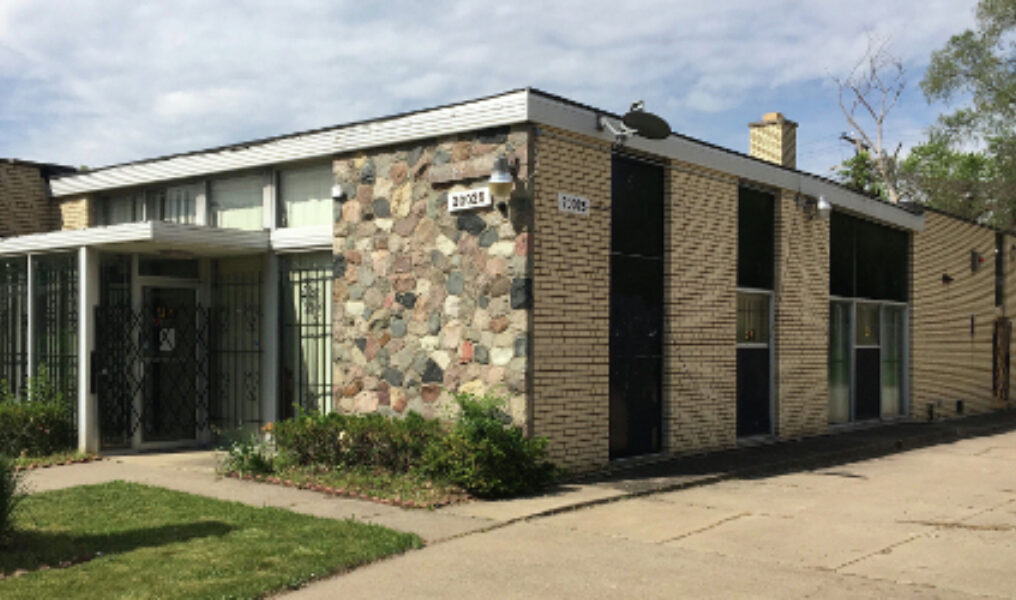Navigating the world of relationships in a healthy way can be tricky for anyone, but when it comes to the LGBTQ community it can be even more difficult. That's because the relationship health and wellness resources that do exist are largely aimed at heterosexual couples, and those resources that are targeted toward the LGBTQ community often are a one-size-fits-all approach. LGBT Detroit is working to fix that by providing its own relationship health and wellness Council that not only address LGBTQ-specific relationship issues but is composed of diverse members of the LGBTQ community.
Originally formed in the spring, because of meeting restrictions surrounding the novel coronavirus pandemic, social media has been the Council's most effective method of meeting with the public. The next scheduled event is its Education Summit, which will start at noon on both Wednesday, Aug. 26, and Thursday, Aug. 27, and will focus on the community's best methods for preventing intimate partner violence among LGBTQ Relationships. Kali Stanton is LGBT Detroit's program coordinator for healing and support services. She said the summit will cover a lot of ground.
"We also have a lot of education divided by specific groups of people. So we're going to talk about LGBT women's health specifically, we've got a panel of five women who are going to talk from personal experience and we have women who are masc and women who identify more as femme — because the reality is that masc and femme women have different experiences in the community. We will have a men's panel, a trans and gender non-conforming panel and then we will have [activist] Nicole Denson making a presentation on bi-erasure in the community," Stanton said. "We will have one of our council members, Rumi Weaver, participate in a conversation, a reflection piece on how to support asexual, demisexual and more gray-scale folks in our community."
Combating Intimate Partner Violence
When asked about some of the reasons behind intimate partner violence within the LGBTQ community, Stanton said that much stems from a lack of healthy relationship examples.
"We all have reflections of relationships from people around us or our parents, our family members, our community a lot of times we don't have reflections of LGBT relationships and of healthy relationships and we take what we have and we roll with it," Stanton said.
Because of this, misconceptions can arise. Common myths within the community include the ideas that men cannot be violent with other men, that women cannot be abusive, that young gay men must seek out an older man for their "introduction" to the community and more. Stanton said that this has even led to generational miscommunications between community members.
The Council members are not only varied in their community roles but they are of varied generations, too, in an effort to foster healing and support across for all members of the LGBTQ community. While there wasn't a specific set of requirements for potential Council members to join, Stanton said that each of the four members underwent an interview process to assess their unique strengths when dealing with relationship biases.
Getting to Know the Council and Future Events
Currently, the Council is made up of Erica Shantel Carter, who is a post-op, transgender woman and LGBTQ activist and performer (Moon1Luv); Rumi Weaver, who is an agender, ace and autistic Detroiter; Deidre D.S. SENSE Smith, a native Detroiter and musician who uses music as a form of healing for the community; and Kyra Smith, a high impact prevention specialist at Community Health Awareness Group and a youth specialist at Ruth's House.
Deidre D.S. SENSE Smith said she learned of the organization by volunteering at Hotter Than July, the world's second-oldest Black gay Pride and had a positive experience. So, when an opportunity came up to give back to the community, she was happy to volunteer again.
"I was entrusted with the tasks of booking and promoting musical acts that were members or allies to the community. The belief that I was capable of doing this on such a large scale, spearheaded the work I continue to do today," she said. "I look forward to bringing a similar vibe to LGBT Detroit grounds with the 'Shed Light Open Mic' series alongside Moon1Luv with the hopes of obtaining an interactive consensus of the concerns and needs of the LGBTQIA community within the city of Detroit and its neighboring areas. We would like to continue to affirm that LGBT Detroit is a safe space where voices are heard and actions bring about viable solutions."
Carter added that the key to creating a trust-filled and subsequently healing environment between LGBT Detroit's Council and the community being served is by listening to those who need help and tailoring an approach that meets the needs of those who are searching for relationship help.
"As a woman who has been in a couple of relationships that were violent and emotionally and spiritually debasing, just to let the community know that there are safe spaces for you to come to and have a safe haven, advancing that, has to be available," she said.
And as important as dealing with intimate partner violence is, the Council's ultimate goal is to create regular monthly events that target all aspects of healthy and unhealthy LGBTQ intimacy.
"So, as we move forward into 2021, we are looking to do two regular activities and two regular engagements every month. And we're looking to fund the council moving forward," Stanton said. "… And we need to find a way to, as an organization that serves no specific gender, but all people who fall under LGBT; we need to find ways to help different people heal differently."
Find out more about the upcoming events online by clicking here.










